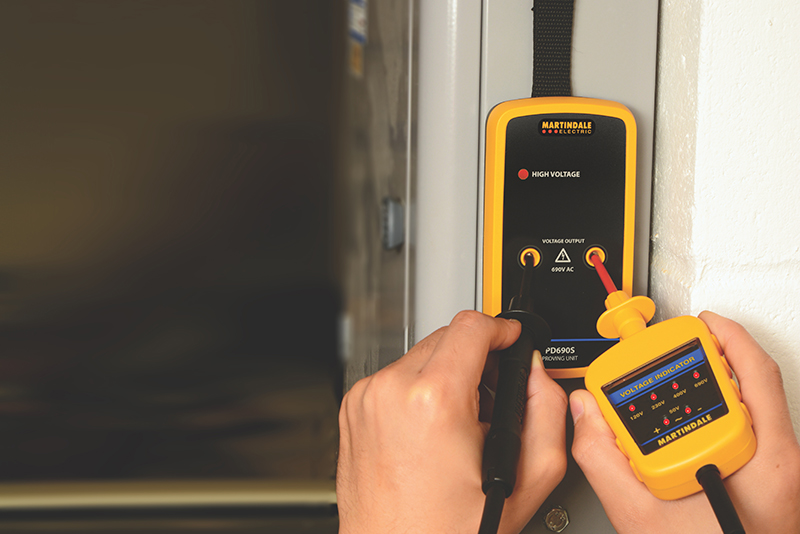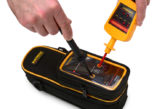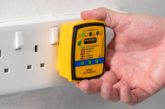
With Health & Safety Executive (HSE) figures highlighting that the construction industry still has one of the highest rates of fatalities, especially amongst self-employed workers, and the recent death of a contractor who was carrying out pre-planned maintenance on an air compressor, Martindale Electric has issued new safety downloads – and is appealing to the construction industry as a whole to hear its fresh warnings over electrical safety.
The latest figures from the HSE, entitled Workplace fatal injuries in Great Britain, 2021, highlight the fact that of all fatal injuries to workers by main industry, construction ranked highest with 39 deaths in the period to March 2021, with an increase on the annual average calculated since 2016. With electricity still cited by the HSE as the root cause of about 1,000 accidents at work each year, and with the construction industry’s increase in fatalities, Martindale Electric is asking “How is this still happening?”
On 5th July 2021, the outcome was reported of a hearing relating to the tragic death of a contractor who was carrying out pre-planned maintenance on an air compressor when he suffered a catastrophic electric shock in December 2017. Reported by The Sun newspaper on 14th February 2019, the “dad-of-four lay undiscovered for more than an hour after he was electrocuted at work.”
Following the hearing, the HSE’s inspector Joanne Williams was reported as saying: “Poorly maintained electrical installations and faulty electrical appliances can kill or severely injure people; and cause damage to property. This was a wholly avoidable incident, caused by the failure of the company to implement safe systems of work and identify the risks. Had the company identified the correct isolation point for the compressor and ensured that employees were sufficiently trained and supervised in the lock off procedures expected of them then this fatal incident would not have occurred.”
Steve Dunning, Managing Director, Martindale, explains; “To lose a loved one in any such incident is devastating enough, but to know that it was wholly avoidable is completely unforgivable. In the case of this contractor, we are talking about a professional engineer with over 30 years of experience. Furthermore, the nature of the work meant that there would have been plenty of time to make preparations ahead of a scheduled maintenance visit. Even though the machine was turned off, we understand that a fault meant that a metal plate was permanently live at 240 volts.”
“It has taken nearly four years for this particular case to be heard – certainly, I imagine, a painful and protracted process for the grieving family. In that time, how many more lives have been put at risk – and will continue to be at risk? How many more people will fail to return home from work as a result of incidents that were totally preventable? Unfortunately, too many people believe that it simply couldn’t happen to them, but the sad fact is that it could.”
In a relentless effort to create safer working practices and protect the lives of anyone working on or near electrical infrastructure and equipment, Martindale Electric created a simplified version of its more comprehensive electrical safe working process in the hope that its memorable acronym – ALIVE – will help to prevent electricity related injuries and save lives. It has also added new downloads to its ALIVE electrical safety campaign landing page and is encouraging more ancillary trades, as well as electrical contractors, to keep themselves safe around electricity. The downloads include posters for the workplace, ALIVE safety cards for toolboxes and a PowerPoint training slide package for all trades.
“There is a tendency to dismiss electrical safety as the remit of the electrician – but the reality is that many engineers, technicians, cleaners and other workers can come into contact with electricity whilst carrying out seemingly innocuous tasks. As an industry, we have to do everything in our power to change mind-sets and create safer habits and we at Martindale will work tirelessly to ensure that our voices are heard, because those who have lost their lives cannot be.”
ALIVE: Five fail-proof steps to safe isolation
A – Approved Kit
Before starting, make sure your equipment meets all legal safety standards (BS EN61243-3).
L – Lock Out
Identify the point of isolation – lock it off – and place warning tags onto the equipment.
I – Initial Prove
Test your Voltage Indicator against the proving unit to make sure that it’s working properly.
V – Voltage Test
Use your Voltage Indicator to confirm that there are no dangerous voltages in the circuit you are about to work on.
E – Ensure
Prove and re-test the Voltage Indicator against the proving unit to ensure it is working, before you start working on the circuit.
Steve Dunning continues: “Everyone has the right to safe working – and everyone deserves access to the most reliable and straightforward safe isolation solutions. By making life-saving processes easy to remember and simple to follow, our hope is that we can put an end to losing loved ones through preventable electrical accidents at work and that we can keep people safe.”
For more details and to access the free downloads, visit martindale-electric.co.uk/alive













